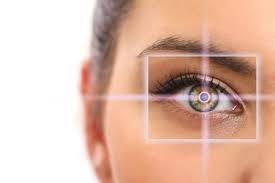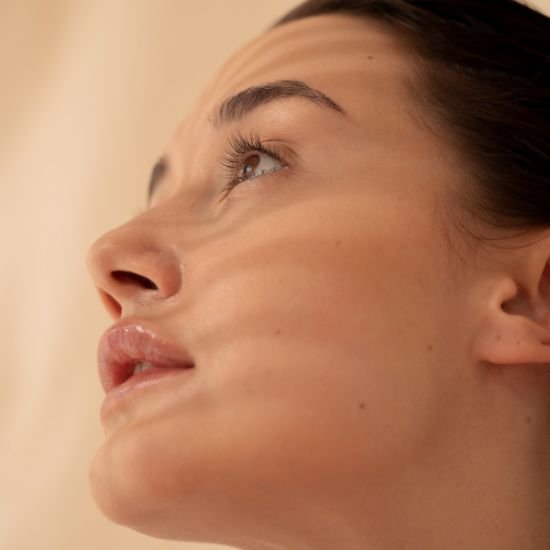
Resveratrol may boost vision health
Share
Resveratrol & Eye health.
Resveratrol was found to have beneficial effects on Vision health in a number of common age–related eye disorders & diseases . Resveratrol was shown to positively effect restoration of the retinal structure and improve blood flow, thereby increasing the flow of oxygen to areas of the eye deficient in oxygen. Resveratrol has also been reported to protect retinal cells from apoptotic death and may be therapeutic to preventing retinal degeneration related to diabetic retinopathy (DR) and light damage.
Resveratrol has been shown in studies to have beneficial effects on eye health in a number of common age–related eye diseases and disorders. The key actions of resveratrol are due to its anti-oxidant, antiapoptotic, anti-inflammatory, antiangiogenic and vaso-relaxant properties.1
There are 4 main disorders or ocular diseases:
- Age-related macular degeneration (AMD), the leading cause of vision loss in adults over 502
- Diabetic retinopathy (DR) with an estimated 140m sufferers globally 3
- Primary open-angle glaucoma (POAG), a chronic disease thought to affect more than 60m people worldwide 4
- Age-related cataracts is responsible for 51% of global blindness 5
Age-related macular degeneration (AMD) and resveratrol:
- Impaired blood flow and subsequent ischemic changes leads to blurred or no vision in the center of the visual field.6
- Resveratrol-based supplementation was shown to positively effect anatomical restoration of retinal structure, improved blood flow and suppress pathological changes induced by hypoxia. 7
- Resveratrol affects mitochondrial biogenesis and has been shown to protect retinal pigment epithelium cells against oxidative cytotoxicity and, therefore, resveratrol may be useful as a nutraceutical in controlling the pathological processes in AMD. 8,9
Diabetic retinopathy (DR) and resveratrol:
- DR results from chronic hyperglycaemia induced inflammation and is linked to gradual retinal pigment epithelium cell degeneration.10
- Affected pathological changes such as increased vessel leakage, pericyte loss and VEGF protein levels were blocked by treatment with resveratrol. 11
- Resveratrol has been reported to protect retinal cells from apoptotic death and data suggest the potential use of resveratrol as a therapeutic agent to prevent retinal degeneration related to DR and light damage. 12
Primary open-angle glaucoma (POAG) and resveratrol:
- Oxidative stress is thought to cause the damage and development of POAG. Resveratrol treatment effectively prevented increased production of intracellular reactive oxygen species and effected inflammatory markers (IL1α, IL6, IL8, and ELAM-1), all biomarkers of oxidative stress.13
- Resveratrol could potentially have a role in preventing trabecular meshwork tissue abnormalities observed in POAG.
Cataracts and resveratrol:
- The formation of age-related cataract is associated with prolonged oxidative stress. Treatment with resveratrol caused an increase in the levels of reduced glutathione which serves to protect against damage by oxidants.14
- Preclinical studies support the involvement of resveratrol for the prevention and treatment of eye diseases induced by oxidative stress and inflammation, such as age-related cataract. 15
- Bola, C. et al. Resveratrol and the eye: activity and molecular mechanisms. Graefes Arch Clin Exp Ophthalmol. 252:699–713 (2014)
- World Health Organization report. Global data on visual impairment (2010)
- Zheng, Y. et al. The worldwide epidemic of diabetic retinopathy. Indian Journalm of Opthamology. 60 (5): 428-431 (2018)
- Pascolini, D. and Mariotti, S. P. Global estimates of visual impairment: 2010. Br J Ophthalmol. 96: 614–8 (2011)
- World Health Organization. Blindness and vision impairment prevention (2018)
- Abu-Amero, K.K. et al. Resveratrol and Ophthalmic Diseases. Nutrients. 8 (4): 200-210 (2016)
- Nagineni, C.N. Resveratrol suppresses expression of VEGF by human retinal pigment epithelial cells: Potential nutraceutical for age-related macular degeneration. Aging Dis. 5: 88–100 (2014)
- Richer, S. et al. Resveratrol based oral nutritional supplement produces long-term beneficial effects on structure and visual function in human patients. Nutrients. 6: 4404–4420 (2014)
- Sheu, S.J. et al. Resveratrol stimulates mitochondrial bioenergetics to protect retinal pigment epithelial cells from oxidative damage. Investig. Ophthalmol. Vis. Sci. 54: 6426–6438 (2013)
- Losso, J.N. et al. Trans-Resveratrol inhibits hyperglycemia-induced inflammation and connexin downregulation in retinal pigment epithelial cells. J Agric Food Chem. 58: 8246–8252 (2010)
- Kim, Y.H. et al. Resveratrol blocks diabetes-induced early vascular lesions and vascular endothelial growth factor induction in mouse retinas. Acta Ophthalmol 90:e31–e37 (2012)
- Kubota, S. Resveratrol prevents light-induced retinal degeneration via suppressing activator protein-1 activation. Am J Pathol. 177:1725–1731 (2010)
- Luna, C. et al. Resveratrol prevents the expression of glaucoma markers induced by chronic oxidative stress in trabecular meshwork cells. Food Chem Toxicol. 47:198–204 (2009)
- Doganay, S. et al. The effect of resveratrol in experimental cataract model formed by sodium selenite. Curr Eye Res. 31:147–153 (2006)
- Goutham, G. A focus on resveratrol and ocular problems, especially cataract: From chemistry to medical uses and clinical relevance. Biomedicine & Pharmacotherapy. 86: 232–241 (2017)









